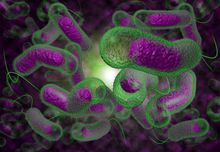
Researchers and health-care practitioners are becoming increasingly aware of the importance of the relationship between the gut and brain for both mental and physical health. There is increasing evidence to suggest there are alterations in the intestinal microbiota (gut bacteria) in people with depression, anxiety, and other mental health disorders. Furthermore, accumulating studies are confirming the potential benefits of probiotics for the treatment of anxiety and depressive disorders.
This very interesting, recently published study now adds to the evidence [1]. In this study, an antibiotic cocktail was administered to mice to deplete their gut microbiota. The mice’s microbiota was then re-colonised via a faecal microbiota transplant (‘poo transplant’) from either:
The researchers found that both mice exposed to CUMS and mice receiving faecal transplants from these CUMS-exposed mice experienced higher levels of anxiety- and depression-like behaviour compared to the control mice. Furthermore, the microbial profile was also different compared to the control mice. This included a lower relative abundance of Lactobacillus and a higher relative abundance of Akkermansia. CUMS-recipient mice also had increased neuroinflammation as demonstrated by elevations in interferon-γ, tumor necrosis factor-alpha, and indoleamine 2,3-dioxygenase 1 in the hippocampus.
These results suggest that exposure to stress increases anxiety and depressive symptoms, changes the gut microbiota, and increases neuroinflammation. Changes in gut microbiota could be a significant cause of anxiety, depression, and neuroinflammation because if you transplant the microbiota of stressed mice to germ-free mice, they then experience depressive and anxiety symptoms, and experience increased neuroinflammation.
As already mentioned, there is an increasing body of evidence confirming the bi-directional relationship between the gut and the brain. This study adds to the body of evidence and highlights the potential importance of improving mental health (and reducing neuroinflammation) by targeting the gut microbiome. This could be through dietary changes and/or the administration of probiotics and prebiotics. Obviously, more human clinical trials need to be conducted, but the gut microbiome is a promising area of future research to potentially enhance treatment outcomes for people with depression, anxiety, and other mental health conditions.